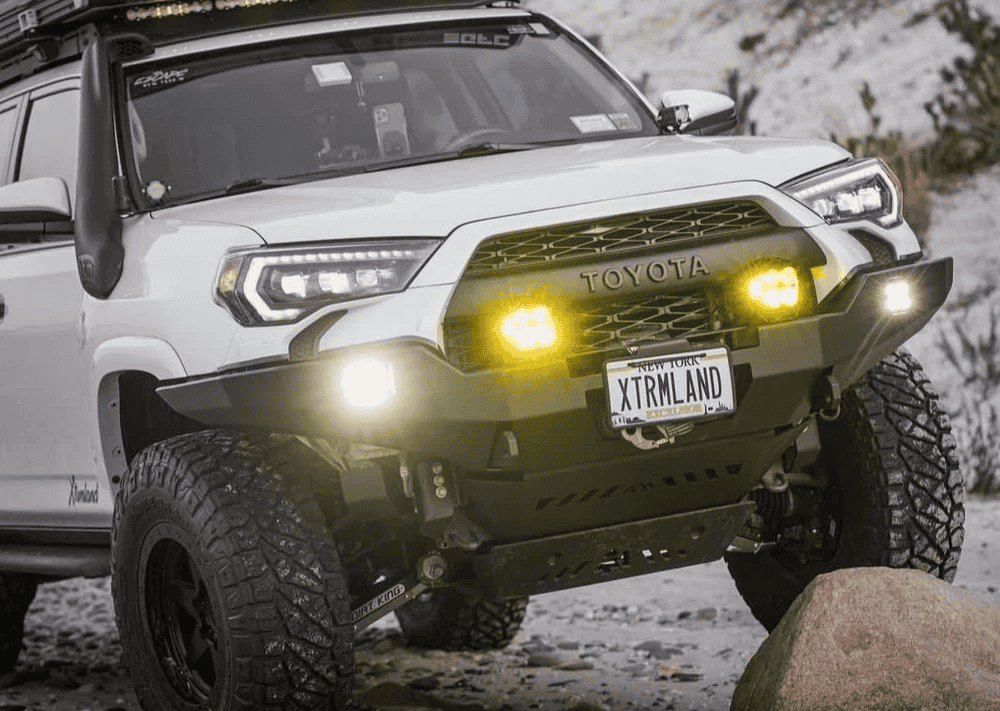Overland Vehicles

Every successful custom off road trailer build begins with a clear mission. Define terrain, trip length, climate, passenger count, and gear. Then translate that into numbers: overall length and height, target curb weight, max gross weight, and tongue weight. Aim for 10 to 15 percent of total weight on the coupler for stable towing. Match width and wheel track to the tow vehicle to keep the trailer in the same ruts on narrow trails and reduce scrub on switchbacks. Lock in a realistic payload so your water, fuel, food, tools, recovery gear, and seasonal items do not push you past axle or tire limits.
The frame is the foundation. Boxed steel with gusseted cross members is common for durability. Aluminum reduces weight but demands proper design to prevent flex cracking. For suspension, choose a setup that fits your trail profile. Independent trailing arms with coilovers deliver ground clearance, articulation, and a calm ride on washboard. A solid axle with leafs can be stout, simple, and easy to service. Add properly valved shocks and bump stops to control motion under braking and in whoops. Electric brakes with a proportional controller are essential; consider breakaway systems and quality wiring with marine grade connectors.
Tires should match the tow vehicle’s diameter and tread style when possible. This simplifies spares and keeps rolling radius consistent for predictable towing. Choose an all terrain pattern for mixed surfaces or a more aggressive option for mud and snow. Aim for at least an inch of clearance around the tire at full compression and turn. Matching bolt patterns and hub sizes allows wheel interchangeability on long trips.
A reliable electrical system turns a box on wheels into an all season basecamp. Lithium iron phosphate batteries offer deep cycling, fast charging, and light weight. Size capacity to cover nightly loads plus weather buffers. Combine solar on the roof with DC to DC charging from the tow vehicle and a shore power charger for flexibility. Use a fused distribution panel, proper wire gauge, and a shunt based monitor to understand real consumption. A pure sine inverter can support small appliances, but keep most loads on efficient 12 volt circuits.
Water planning starts with honest daily use. Typical setups carry 10 to 40 gallons depending on group size and climate. Use food grade tanks, a strainer, pressure pump, accumulator, and a sediment plus carbon filter. For hot water, consider an on demand heater or a heat exchanger tied to the tow vehicle’s coolant with a safety bypass. Place fill and drain ports where they will not ingest dust or splash.
Inside, marine plywood with high pressure laminate resists moisture and abrasion. Composite panels reduce weight while adding stiffness and thermal performance. Closed cell foam or mineral wool helps regulate temperature and damp noise. Weather and dust sealing is non negotiable: gasketed doors, latches with compression, and a filtered positive pressure vent keep fine dust out on dirt roads. Ventilation via roof vents and screened windows reduces condensation.
Include smart tie down points, modular drawers, and bin friendly bays so gear remains organized. Use adjustable tracks to reconfigure layout for seasons or sports. LED task lighting in zones makes nights easier without draining batteries. Add skid plates and rock guards under vulnerable areas, and choose a durable coating for the frame and tubs.
Verify lighting meets standards for width, height, and side markers. Install reflective tape where required. Safety chains, class rated coupler, and a tested breakaway switch are musts. Torque lug nuts and check bearing preload after the first few hundred miles. Perform a shakedown on local trails, record vibrations or rattles, then re torque, re seal, and adjust shock settings. End with a maintenance schedule for hubs, suspension bushings, and brakes.
As you refine your plan, consider how your trailer complements the tow rig. Holistic systems tow better, last longer, and turn camp setup into muscle memory.
When you are ready to translate a spec sheet into steel, suspension, and systems, a seasoned builder can accelerate the process and avoid pitfalls. OZK Customs designs and builds purpose made towables and trail ready rigs with careful attention to structure, ride, and livability. Explore our Overland rigs to see how we tailor platforms for remote travel, then dig into our Custom overland upfit approach for suspensions, racks, lighting, and power. New to our shop and process? Learn more at Why choose OZK Customs.
Share your route types, must carry gear, and tow vehicle details. We will blueprint the frame, dial suspension geometry, and size power and water so your trailer tows straight, stays quiet, and works as hard as you do. Submit the form to start your consult and get a build plan that turns long weekend loops and big mile expeditions into second nature.
Ready to spec a purpose built towable? Share your trip style, gear list, and tow vehicle. OZK Customs will design and build a dialed trailer that tows stable, powers your camp, and stands up to the backcountry. Submit the form to start your build consult.
ADDRESS:
6159 E Huntsville Rd, Fayetteville, AR 72701
PHONE:
(479) 326-9200
EMAIL:
info@ozkvans.com